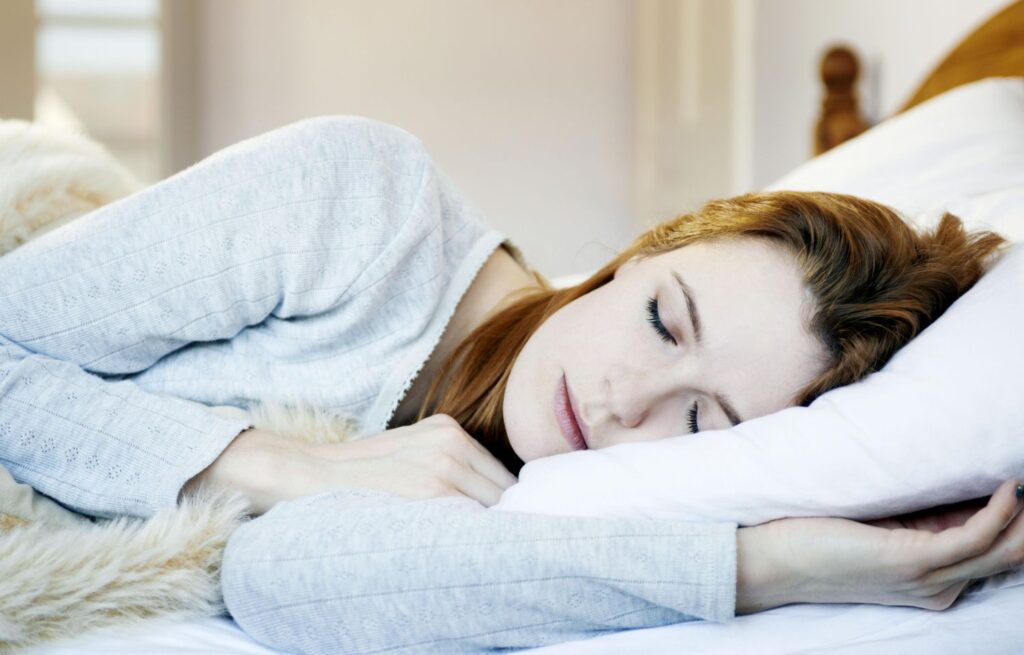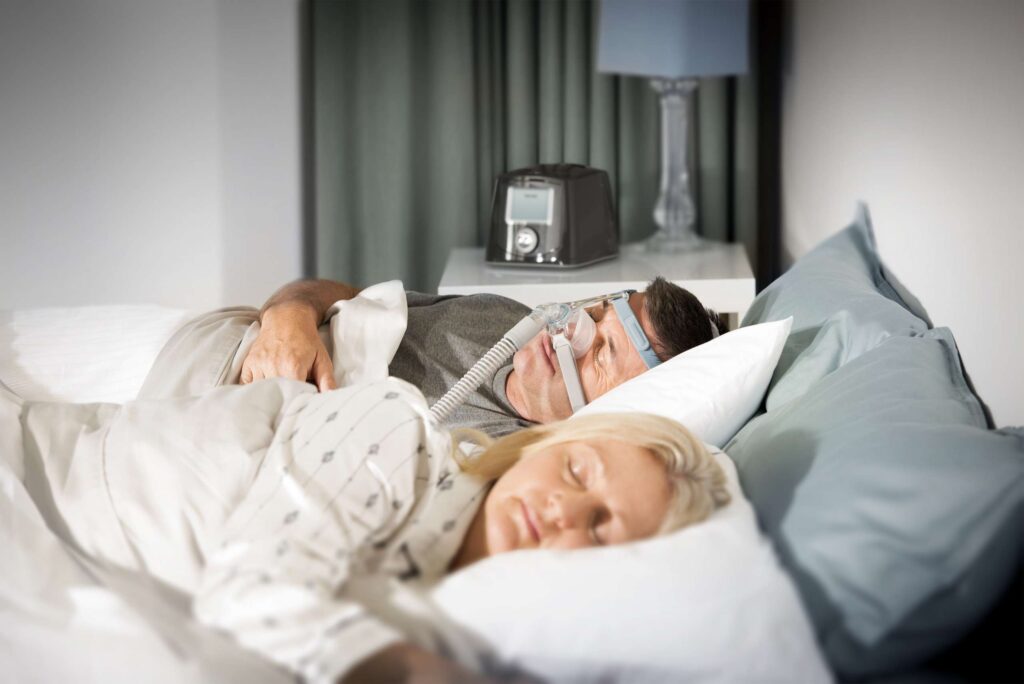Sleep testing services in Brisbane provide essential diagnostic tools for identifying and treating sleep disorders that affect thousands of Australians. These specialised medical assessments help healthcare professionals diagnose conditions such as sleep apnea, insomnia, and other sleep-related breathing disorders.
Sleep studies, conducted either at home or in specialised sleep laboratories across Brisbane, measure vital indicators during sleep, including:
- Breathing patterns and oxygen levels
- Heart rate and blood pressure
- Brain activity and eye movements
- Muscle activity and body positioning
The significance of sleep testing extends beyond identifying sleep disorders. Research demonstrates that untreated sleep conditions can lead to serious health complications:
- Increased risk of heart disease
- Higher chances of developing type 2 diabetes
- Compromised immune system function
- Impaired cognitive performance
Early detection through professional sleep testing allows for timely intervention and appropriate treatment strategies. Proper diagnosis and management of sleep disorders can dramatically improve sleep quality, daytime functioning, and long-term health outcomes.

Understanding Sleep Disorders and Their Impact
Sleep disorders encompass a range of conditions that affect sleep quality and duration. Obstructive Sleep Apnea (OSA) occurs when throat muscles intermittently relax during sleep, blocking the airway and causing breathing interruptions. These interruptions can happen multiple times per hour, preventing the body from entering deep, restorative sleep phases.
Medicare provides substantial coverage for sleep testing Brisbane through the Medicare Benefits Schedule (MBS). Patients can access Medicare rebates for sleep studies when referred by a qualified medical practitioner and meeting specific eligibility criteria:
Other prevalent sleep disorders include:
- Insomnia: Difficulty falling asleep or staying asleep
- Restless Legs Syndrome: Uncomfortable sensations causing an irresistible urge to move the legs
- Narcolepsy: Sudden, uncontrollable episodes of daytime sleepiness
Read more at: In-Clinic vs Home Sleep Tests in Brisbane
Health Risks of Untreated Sleep Apnea
Untreated sleep apnea presents significant health risks:
- Increased blood pressure and strain on cardiovascular system
- Higher risk of heart attacks and strokes
- Development or worsening of type 2 diabetes
- Memory problems and cognitive decline
- Weakened immune system function
Daily Impacts of Sleep Disorders
Sleep disorders create substantial impacts on daily functioning:
- Reduced alertness and concentration
- Increased risk of workplace accidents
- Higher likelihood of motor vehicle incidents
- Mood changes and irritability
- Depression and anxiety development
- Strained relationships due to behavioural changes
- Decreased work productivity
- Impaired decision-making abilities
Research indicates individuals with untreated sleep disorders face a 2-3 times higher risk of workplace accidents and are seven times more likely to be involved in motor vehicle crashes. The physical and mental health implications extend beyond the immediate symptoms, potentially leading to long-term health complications when left unaddressed.
For those seeking help with sleep disorders, there are various treatment options available that can significantly improve quality of life.

Signs You May Need a Sleep Study
Recognising the signs that indicate the need for a sleep study can lead to early diagnosis and effective treatment of sleep disorders. Several key symptoms signal potential sleep-related issues:
Primary Warning Signs:
- Loud, persistent snoring that disrupts bed partners
- Witnessed episodes of breathing pauses during sleep
- Waking up gasping or choking
- Persistent daytime fatigue despite sleeping 7-9 hours
These symptoms may suggest the necessity for a sleep study in Perth, which could provide valuable insights into your sleep patterns and help identify any underlying disorders.
Additional Symptoms:
- Morning headaches
- Difficulty maintaining focus on tasks
- Irritability and mood changes
- Falling asleep during quiet activities
- Night-time teeth grinding
- Dry mouth or sore throat upon waking
Sleep Pattern Red Flags:
- Multiple night-time bathroom visits
- Restless sleep with frequent position changes
- Difficulty falling or staying asleep
- Excessive movement during sleep
People experiencing these symptoms should document their frequency and severity. A sleep diary tracking sleep patterns, daytime fatigue levels, and related symptoms can provide valuable information for healthcare providers. This documentation helps determine whether a sleep study would be beneficial for diagnosis and treatment planning. Find more about fatigue on https://www.health.harvard.edu/topics/energy-and-fatigue
Certain groups face higher risks of sleep disorders, including:
- Individuals with a BMI over 30
- People over 50 years of age
- Those with a family history of sleep disorders
- Individuals with chronic health conditions
For those situated in Melbourne or Sydney, seeking professional help through a sleep study in Melbourne or a sleep study in Sydney could be a vital step towards better health. Similarly, residents of Hobart can also avail themselves of specialized services such as sleep studies in Hobart.
Types of Sleep Studies Available in Australia
Sleep testing facilities in Australia, including those in Brisbane, Adelaide, and Canberra, offer two primary diagnostic methods to assess sleep disorders: home-based studies and in-lab polysomnography (PSG). Each type serves specific diagnostic purposes and patient needs.
Home-Based Sleep Studies
- Conducted in the comfort of one’s own bedroom
- Portable monitoring device records breathing patterns, oxygen levels, and heart rate
- Ideal for straightforward cases focusing on sleep apnea diagnosis
- Less comprehensive than in-lab studies but more convenient for patients
In-Lab Polysomnography (PSG)
- Comprehensive overnight study in a specialised sleep laboratory
- Monitors multiple physiological parameters:
- Brain activity (EEG)
- Eye movements
- Muscle activity
- Heart rhythm
- Breathing patterns
- Blood oxygen levels
- Body position
- Provides detailed data for diagnosing complex sleep disorders
- Supervised by trained sleep technologists throughout the night
CPAP Titration Studies
- Specialised sleep study for patients diagnosed with sleep apnea
- Determines precise air pressure settings for CPAP therapy
- Monitors patient response to different pressure levels
- Can be performed as:
- Split-night study (diagnosis and titration in one night)
- Separate full-night titration study
- Essential for optimising treatment effectiveness
The choice between home-based and in-lab studies depends on several factors, including the suspected sleep disorder’s complexity, medical history, and physician recommendations. Sleep specialists assess each case individually to recommend the most appropriate testing method for accurate diagnosis and effective treatment planning. For instance, sleep studies in Brisbane may differ from those in Adelaide or Canberra, reflecting the unique needs and circumstances of each patient.
The Patient Pathway for Sleep Testing and Treatment in Brisbane
The journey from diagnosis to treatment for sleep disorders in Brisbane follows a structured pathway designed to ensure comprehensive care and optimal outcomes.
Initial Steps:
- GP consultation and referral
- Sleep questionnaire completion
- Preliminary health assessment
- Selection of appropriate sleep study type
A Sleep Physician reviews the initial assessment results to determine whether a home-based study or in-lab polysomnography best suits the patient’s needs. This decision considers factors such as existing health conditions, severity of symptoms, and practical considerations. To learn more about severity click here.
Diagnostic Phase:
- Completion of prescribed sleep study
- Data analysis by sleep technicians
- Comprehensive report generation
- Sleep Physician interpretation and diagnosis
Sleep Physicians play a crucial role in analysing test results and creating individualised treatment strategies. These specialists consider multiple factors, including:
- Severity of sleep disorder
- Underlying health conditions
- Lifestyle factors
- Patient preferences
- Treatment compatibility
For patients diagnosed with sleep apnea requiring CPAP therapy, the treatment pathway includes:
CPAP Initiation Programme:
- Equipment selection and fitting
- Mask fitting and comfort optimisation
- Usage instruction and education
- Initial pressure settings configuration
Ongoing Support Structure:
- Regular progress monitoring
- Remote data tracking
- Pressure adjustments as needed
- Equipment maintenance guidance
- Compliance support
The treatment journey includes scheduled follow-up appointments to assess progress and make necessary adjustments. Sleep clinics in Brisbane maintain detailed records of patient progress, enabling healthcare providers to track treatment effectiveness and make data-driven decisions about ongoing care.
For complex cases, sleep specialists may collaborate with other healthcare providers, such as ENT specialists or dental sleep medicine practitioners, to ensure comprehensive treatment approaches. This integrated care model helps address all aspects of sleep-related disorders and their impact on patient health.
Home-Based Sleep Studies: Convenience and Effectiveness
Home-based sleep studies represent a significant advancement in sleep disorder diagnostics, offering patients a comfortable alternative to traditional laboratory testing. These portable monitoring devices are designed to record essential sleep parameters while patients rest in their familiar home environment.
How Home-Based Sleep Studies Work
The process begins with a comprehensive device fitting session at a sleep clinic. Trained technicians demonstrate the correct placement of sensors and provide detailed instructions for optimal usage. The monitoring equipment typically includes:
- A small recording device worn on the chest
- Nasal cannula to measure airflow
- Finger probe for oxygen levels
- Chest and abdomen bands to track breathing effort
- Position sensor to monitor sleep position
Setting up the device at home takes approximately 15-20 minutes. Patients attach the sensors as instructed and activate the device before their normal bedtime. The equipment automatically records vital sleep data throughout the night, including:
- Breathing patterns
- Heart rate
- Blood oxygen levels
- Body position
- Snoring intensity
Benefits of Home-Based Sleep Studies
Home sleep testing proves particularly effective for diagnosing obstructive sleep apnea. The familiar sleep environment often produces more representative results compared to laboratory settings. Additional benefits include:
- Reduced waiting times for testing
- Lower costs compared to in-lab studies
- Minimal disruption to daily routines
- Ideal for patients with mobility issues
- Suitable for those in remote locations
For straightforward cases focused on breathing-related sleep disorders, home-based studies provide accurate diagnostic data while maximising patient comfort and convenience.
Medicare and Insurance Coverage for Sleep Testing in Brisbane
Medicare-covered sleep studies require:
- A referral from a qualified medical practitioner
- Documented symptoms of sleep disorder
- Completion of approved sleep questionnaires
- Meeting specific health risk factors
Medicare rebates typically cover:
- Initial consultation with sleep specialist
- Diagnostic sleep studies (PSG or home-based)
- Follow-up consultations for results interpretation
Private health insurance adds another layer of financial support for sleep disorder treatment. Many insurers offer coverage for:
- CPAP equipment purchases
- Equipment rental programs
- Ongoing maintenance costs
- Replacement masks and accessories
Insurance Coverage Tiers:
- Basic hospital cover – limited sleep study coverage
- Mid-tier policies – partial CPAP equipment coverage
- Top-tier policies – comprehensive sleep therapy coverage
The exact coverage amount varies between insurance providers. Patients should contact their insurance provider to understand specific policy benefits and any waiting periods that may apply to sleep-related services.
Private health funds often require pre-approval for CPAP equipment claims. Documentation from sleep physicians helps substantiate medical necessity and expedite the claims process.
Choosing the Right Clinic in Brisbane for Your Sleep Test
Selecting an appropriate sleep clinic requires careful consideration of several key factors to ensure quality care and accurate diagnosis. Essential criteria for evaluation include:
1. Accreditation and Expertise
- Qualified sleep physicians and technicians
- Current accreditation from recognised medical bodies
- Advanced diagnostic equipment and facilities
2. Comprehensive Services
- Both diagnostic and treatment options
- Access to CPAP therapy and equipment
- Ongoing support and follow-up care
3. Patient Experience
- Positive reviews and testimonials
- Clear communication practices
- Comfortable testing environment
- Flexible appointment scheduling
4. Financial Considerations
- Bulk billing availability for eligible patients
- Transparent pricing structure
- Medicare and private health insurance acceptance
Leading sleep clinics in Brisbane, such as SNORE Australia and Healthy Sleep Solutions, maintain partnerships with major CPAP equipment manufacturers and offer extensive coverage through their network of sleep brands. These established clinics typically provide integrated care pathways, from initial consultation through to long-term management of sleep disorders.
Patients should prioritise clinics that demonstrate a commitment to personalised care while maintaining high professional standards. Direct consultation with potential providers about their specific needs and circumstances can help determine the most suitable choice for sleep testing services.

